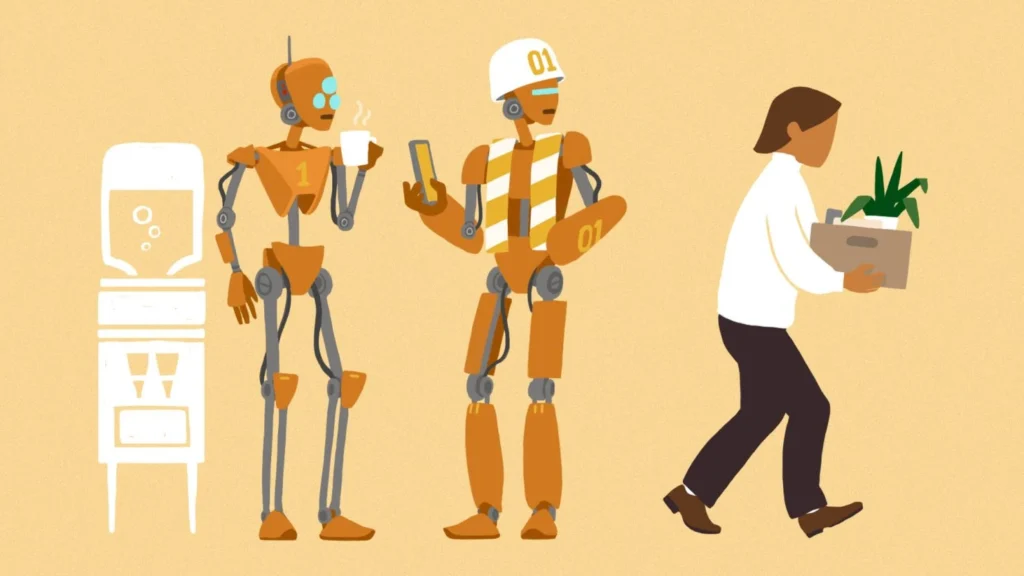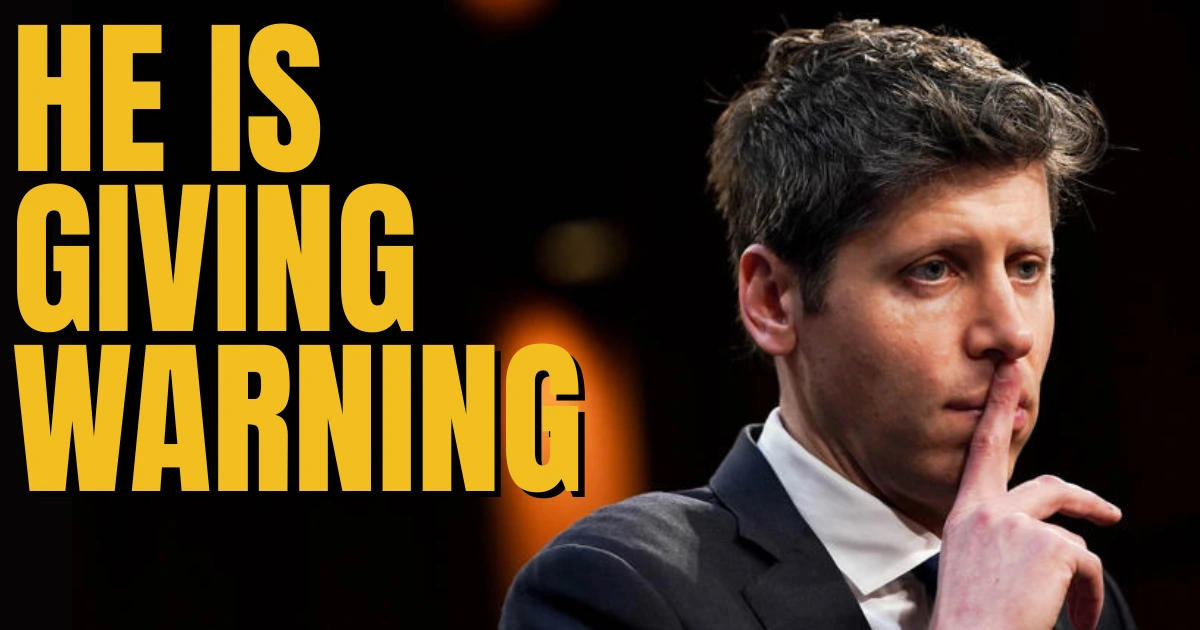Sam Altman, CEO of OpenAI, warns of an AI-driven fraud crisis as voice and video impersonation tools become indistinguishable from reality. Learn how AI is transforming cybersecurity risks and job markets.
Table of Contents
OpenAI CEO Sam Altman Warns of an AI ‘Fraud Crisis’
Artificial intelligence has reached a pivotal crossroads—and according to OpenAI CEO Sam Altman, the world is alarmingly underprepared for what’s to come. During a powerful interview at the Federal Reserve, Altman issued a stark warning: a fraud crisis, fueled by AI, is looming on the horizon.
From cloned voices that trick financial institutions to deepfake videos that blur the line between truth and illusion, the tools for mass deception are no longer science fiction. They’re already here.
AI’s Rising Threat to Identity Verification
One of Altman’s primary concerns is the ability of AI to defeat existing authentication systems. He highlighted that some financial institutions still rely on voice authentication—a method that AI can now easily replicate.
“That is a crazy thing to still be doing… AI has fully defeated most of the ways that people authenticate currently, other than passwords,” Altman said.
These vulnerabilities present serious risks. With AI now capable of mimicking a person’s voice to an astonishing degree of accuracy, a simple phone call could be all it takes to authorize a major transaction—or commit fraud.
And it’s not limited to financial institutions. AI-powered scams are targeting everyday people.
AI Cloning Scams: Real-Life Consequences
The FBI has already issued warnings about AI-driven scams using cloned voices. One of the most harrowing examples involved parents receiving AI-generated calls imitating their children in distress. The emotional manipulation is terrifying—and effective.
More recently, U.S. officials reported that someone impersonated Secretary of State Marco Rubio using AI, contacting foreign ministers, a state governor, and even a member of Congress.
Altman emphasized:
“Right now, it’s a voice call; soon it’s going be a video or FaceTime that’s indistinguishable from reality.”
He made it clear that although OpenAI is not developing such impersonation tools, the global community must prepare for their rapid emergence.
The Orb: A ‘Proof of Human’ System
In response to the threat of AI impersonation, Altman is backing a biometric tool called The Orb, developed by Tools for Humanity. This device scans people’s irises to verify that they are real humans—offering a digital proof of humanity in an age of synthetic identities.
The Orb represents one of the first serious efforts to address the “deepfake crisis” at a foundational level. Whether it can gain mainstream trust and adoption remains to be seen, but the urgency of the problem is undeniable.
OpenAI’s Growing Political Footprint
As these challenges escalate, OpenAI is strategically expanding its presence in Washington, D.C. The company plans to open a 30-person office in early 2026, led by Chan Park (head of global affairs) and Joe Larson (former Anduril executive).
This new hub will serve multiple functions:
- Hosting policymakers
- Previewing new AI technologies
- Conducting research into AI’s economic impacts
- Offering AI education to government officials and educators
With Capitol Hill becoming increasingly active in AI regulation, OpenAI wants a seat at the table.
Avoiding Overregulation
Despite the risks, OpenAI is cautious about how regulation should evolve. The company is advising the Trump administration to avoid heavy-handed laws that could stifle innovation.
Earlier this month, the U.S. Senate removed a provision from Trump’s agenda bill that would have blocked states from enforcing their own AI laws for a decade—a victory for OpenAI and other tech giants who fear losing their competitive edge globally.
A Broader Economic Concern
Beyond fraud, Altman worries about the misuse of AI “superintelligence” by adversarial nations. The hypothetical scenario: an AI system powerful enough to cripple the U.S. power grid or design a bioweapon.
These aren’t idle fears. Altman said he loses sleep over the possibility that bad actors could exploit these technologies before the world is ready to defend against them.
“Superintelligence” may sound futuristic, but OpenAI and others in Silicon Valley believe it could become reality by the 2030s. Whether or not that happens, the risk of misalignment between human values and machine goals is now a front-page concern.
Will AI Take Our Jobs? Altman Says No One Knows

While many tech leaders warn that AI will displace millions of workers, Altman has a more nuanced take: “No one knows.”
He calls into question the sweeping predictions about job losses, automation, and economic collapse. According to Altman, the complexity of the system makes accurate forecasting nearly impossible.
“This is too new and impactful of a technology, it’s very hard to predict.”
Still, he admits that entire classes of jobs will disappear. But new ones will emerge, just as they did during previous industrial revolutions.
A Post-Work Future?
Looking even further into the future, Altman speculates that human jobs may one day become obsolete—not because of unemployment, but because people won’t need to work in the traditional sense.
“You have everything you could possibly need. You have nothing to do. So, you’re making up a job to play a silly status game and to feel useful to other people.”
That vision, while idealistic, doesn’t explain how AI would handle complex physical or interpersonal tasks like dental care, home construction, or legal advocacy. But it underscores the profound transformation Altman believes AI will bring to society.
OpenAI’s Economic Report: Early Signals
To support his claims, OpenAI released a new report compiled by its first Chief Economist, Ronnie Chatterji. Key findings include:
- 500 million users globally on ChatGPT
- 20% of U.S. users rely on it for “personalized tutoring” and upskilling
- Over 50% of users are aged 18 to 34, suggesting long-term economic engagement
Chatterji compares AI’s rise to transformative milestones like electricity and the transistor. Over the next year, he’ll partner with economists Jason Furman and Michael Strain to study how AI will affect the U.S. labor market.
This research will be conducted from the new Washington office, reinforcing OpenAI’s focus on long-term public policy engagement.
Frequently Asked Questions (FAQs)
1. Why did Sam Altman call AI a “fraud crisis”?
Altman warned that AI can now impersonate human voices and faces with alarming accuracy. This enables scams, fraud, and misinformation to spread rapidly, posing risks to individuals and institutions alike.
2. What is The Orb?
The Orb is a biometric device that scans a user’s iris to verify their humanity. It’s a project Altman supports to combat AI-generated deepfakes and synthetic identities.
3. Is OpenAI building AI tools for impersonation?
No, Altman has clarified that OpenAI is not building tools that enable impersonation. However, other developers are creating such tools, and the threat is growing.
4. Will AI take away jobs?
Altman says it’s too early to tell. While some jobs will be eliminated, new categories of work may emerge. He believes predictions about mass job loss are speculative.
5. How is OpenAI engaging with the government?
OpenAI is opening a Washington, D.C. office to work closely with lawmakers and policymakers, provide AI training, and conduct economic research related to AI’s impact.
6. What did the recent AI report from OpenAI reveal?
The report noted that 20% of U.S. ChatGPT users use the tool for learning and upskilling, with over 50% aged 18 to 34. It sees long-term productivity benefits tied to AI adoption.
